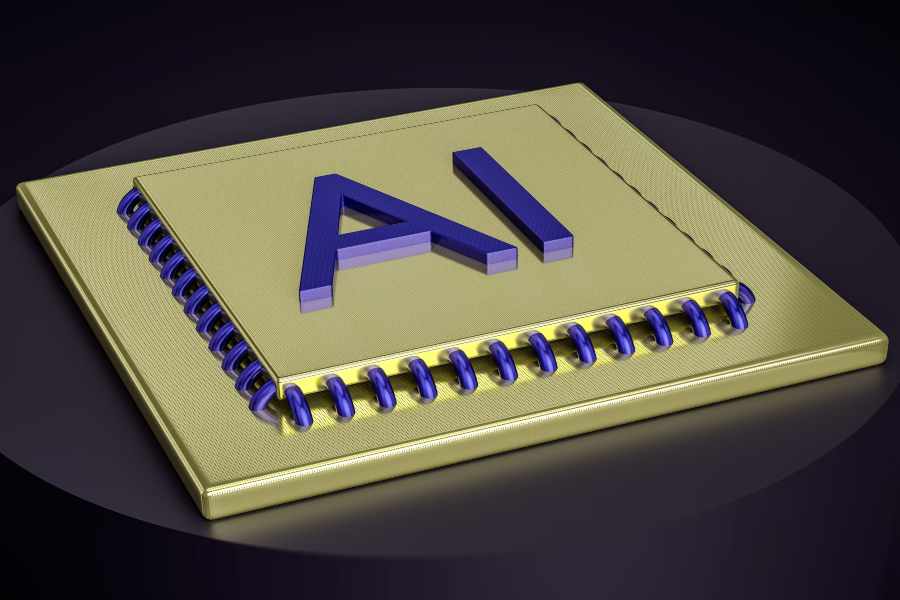Are we using Artificial Intelligence (AI) to detect AI cheating?

Your brain still dominating your writing? Why not switch things up a bit by using a large scroll and quill to pen your book or essay instead? Pick up a chisel and carve away!
Don’t live in the past – artificial intelligence is now and will only continue to develop in the coming years.
But I understand. No one wants to read AI-generated content, and if school requires writing assignments using AI generated material it can be seen as cheating. Additionally, this issue poses personal difficulties for writers when AI generated material enters communities masquerading as authorship.
Boomer: Whatever.
How can we tell what content has been generated by AI and what has not?
What is the answer? AI is.
AI can not only write your book, articles and term papers for you, create art that doesn’t require cooking and create grocery lists that “forget” ingredients – it can also police other robots that might do this – while we watch with popcorn, mild panic and mild anxiety! Welcome to the Ouroboros of AI: an interlinked looping series of robots police other robots while we enjoy watching their drama unfold with mild panic and mild anxiety.
Let’s step back for a second and consider: AI detection? Assuming it was your intention all along, who were we to accuse AI of detection when this is what they think it’s supposed to do? And is AI detection justifiable given your beliefs of cheating with school work or using “shortcuts” which deceive, or unethically used methods in work environments? How could this possibly justify its detection – won’t that also count as cheating?
This rabbit hole will likely prove more complex than trying to explain blockchain to your grandmother.
What happens is this: Imagine handing your professor a beautifully written essay that was not solely your work but included some influence from artificial persuasion – no biggie; after all, AI was only used ethically in helping guide your writing towards success, just like hiring a tutor–only this tutor–the robot tutor is free and doesn’t judge or criticise what choices were made in your life.
AI-Generated Content: Its Rise
AI technologies such as image generation software and natural language processing models have transformed how we produce and consume content. Now writers can use AI to assist them with draft essays, generate ideas, or produce entire articles – sparking debate over its impact on creative processes and academic integrity; critics allege that using AI-generated content creates cheating practices and devalues creativity altogether.
AI Detection Tools: What Is Their Function?
New tools have emerged to detect AI-generated work. These programs use algorithms to examine text for patterns that distinguish human-written output from machine-generated output, making these systems increasingly used by schools and universities to maintain academic standards and prevent plagiarism. But their use begs the question: If using AI to produce content is considered cheating, is using detection tools considered cheating as well?
Critics of AI tools contend there is a double standard at work; using AI to AI essay writers may be unethical while using it to detect those using it as cheating could be seen as cheating – both practices involve deception. AI detection software’s use in monitoring student work raises similar concerns while students could also utilize it themselves to refine writing or form ideas more quickly and precisely. Is it ethical for institutions to utilize AI while at the same time criticizing its use elsewhere?
This situation presents a complex moral conundrum. AI detection tools help to maintain academic integrity by ensuring students engage in authentic learning; on the other hand, constant monitoring by AI detection tools creates an atmosphere of mistrust amongst students as their progress is continually evaluated against subjective standards set by institutions. At stake here is not simply cheating but what values we hold dear in education: is it more important to detect potential dishonesty than to foster critical thinking and creativity?
The AI Ouroboros
AI detection tools that detect AI-generated content often leads to what some call an “AI Ouroboros,” an ongoing cycle in which AI systems police themselves. Here, the boundaries between creation and evaluation become unclear within a digital ecosystem; as technology continues to advance this could have profound ramifications for both students and educators alike.
Future: Navigating It
It is vital that we navigate this AI-dominated world with caution. Educational institutions should establish guidelines to govern acceptable uses of AI technologies while taking full advantage of any learning benefits these tools may present. Promoting open dialogues about ethics and integrity may help students to better comprehend how their decisions may have long-term repercussions when using these tools.
The concept of using AI to detect AI as cheating is multidimensional and challenging to our conceptions of creativity, integrity and the role technology plays in society. Society should engage in meaningful discussions regarding this technology while setting ethical frameworks to guide its use in an ethical manner that fosters creativity and learning.
